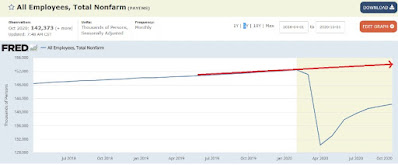COVID-19 notes:
How the Coronavirus Hacks the Immune System.
SARS-CoV-2 uses 'genome origami' to infect and
replicate inside host cells
Regular Related Fare:
NFP
(not just) for the ESG crowd:
Global food system emissions could preclude achieving
the 1.5° and 2°C climate change targets
Thought for food
To have any hope of meeting the central goal of the Paris Agreement,
which is to limit global warming to 2°C or less, our carbon emissions must be
reduced considerably, including those coming from agriculture. Clark et al.
show that even if fossil fuel emissions were eliminated immediately, emissions
from the global food system alone would make it impossible to limit warming to
1.5°C and difficult even to realize the 2°C target. Thus, major changes in how
food is produced are needed if we want to meet the goals of the Paris
Agreement.
To batteries and
beyond: Compressed air, liquid air and the holy grail of long-duration storage
At least 32 utilities are aiming to be carbon-free or achieve net-zero
emissions by 2050. This is the third of a four-part series exploring the
storage technologies that could get them there.
Abstract: Many studies have concluded
that the current global economy can transition from fossil fuels to be powered
entirely by renewable energy. While supporting such transition, we critique
analysis purporting to conclusively demonstrate feasibility. Deep uncertainties
remain about whether renewables can maintain, let alone grow, the range and
scale of energy services presently provided by fossil fuels. The more
optimistic renewable energy studies rely upon assumptions that may be
theoretically or technically plausible, but which remain highly uncertain when
real-world practicalities are accounted for. This places investigation of
energy society futures squarely in the domain of post-normal science, implying
the need for greater ‘knowledge humility’ when framing and interpreting the
findings from quantitative modelling exercises conducted to investigate energy
futures. Greater appreciation for the limits of what we can know via such
techniques reveals ‘energy descent’ as a plausible post-carbon scenario. Given
the fundamental dependence of all economic activity on availability of energy
in appropriate forms at sufficient rates, profound changes to dominant modes of
production and consumption may be required, a view marginalised when more
techno-optimistic futures are assumed. Viewing this situation through the lens
of ‘post-normal times’ opens avenues for response that can better support
societies in navigating viable futures.




No comments:
Post a Comment